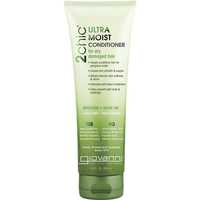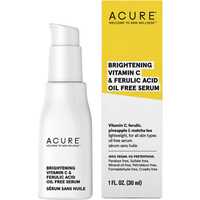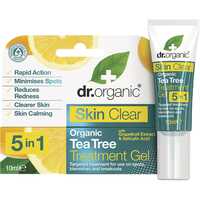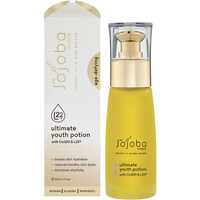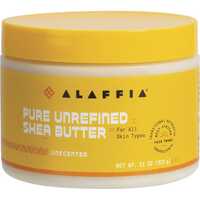If you haven't already done so, click here to read part 1 of this article.
Cosmetic products vary widely based on their intended application and market. From face creams and lotions to cleansers and makeup, a huge global industry exists to satisfy a diverse range of customers. The ingredients used in beauty products also vary widely, from organic natural substances to synthetic chemicals and preservatives.
Last week, we started our comprehensive review of the cosmetic industry. After looking at a brief history of the sector, we analysed typical ingredients and associated problems. This week, we'll dive deeper into potential issues and also list some of the common natural ingredients found in modern beauty products. From coconut and olive oil to shea butter and aloe vera, many of these ingredients have been used by humans for thousands of years.
While the synthetic ingredients used in commercial beauty products are not necessarily problematic, lots of people prefer to cover their face, body, and hair with natural materials. These ingredients may not offer the extended shelf life or unique effects of some synthetic products, but they have a long history of safe and sustainable use for the body and planet.
The Problem with Some Cosmetics
Choosing the right beauty products for your body is not always easy. There are lots of things to consider, from your skin type and personal preferences to the brand name and purchase price. For many people, the list of ingredients is another important factor. As we learn more about our bodies, more people are selecting cosmetics based on what's inside the bottle. Ethical and environmental awareness also plays a role, with some ingredients, products, and companies known to have a negative impact on the Earth.
Potential Health Problems
Cosmetic products include a vast array of ingredients, some of which can be problematic. Many of the worst offenders were listed in last week's article, including parabens, heavy metals, triclosan, and formaldehyde. However, with the average cosmetic product containing 15-50 ingredients, there are many other compounds with known health concerns. Some of the things you may want to avoid include phthalates like DBP, DEHP, and DEP; PEG or polyethylene glycol; retinol or synthetic vitamin D; SLS or sodium lauryl sulfate; SLES or sodium laureth sulfate; the synthetic stabilisers BHA and BHT; the binding agent EDTA; octinoxate; and oxybenzone and avobenzone.
This list is far from exhaustive, however, so do your homework thoroughly or choose to buy ethical and natural beauty products. If you're looking into local regulations, it's important to be aware of cosmetic compliance and labelling in Australia. Cosmetics are assessed based on requirements established by the Australian Industrial Chemical Introduction Scheme (AICIS), alongside the Therapeutic Goods Administration (TGA). Each ingredient must be listed in the inventory or represent no more than 1% of the final product and meet certain toxicological criteria.
The AICIS regulates all cosmetic products sold in Australia, and the TGA assesses products that make specific therapeutic claims. According to the TGA, all therapeutic ingredients in cosmetic products are regulated as 'industrial chemicals' under the Industrial Chemicals Act 2019. This includes natural ingredients and those described as 'natural'. However, naturally occurring chemicals are excluded from some obligations. This includes unprocessed chemicals that occur in a natural environment or chemicals extracted from a natural environment without chemical change.
Potential Ethical Problems
Along with health concerns, the cosmetic industry has also been linked with numerous ethical issues. From animal testing and working conditions to cultural issues linked with body image, there are lots of factors you may wish to consider. Many brands make an effort to produce ethically sourced products, with base ingredients coming from known sources and working conditions considered along the way. Many brands engage in ethical testing, treat their workers well, and ensure fair compensation throughout their supply chain.
Along with sourcing methods and working conditions, the beauty industry also helps to set social standards. Unrealistic body image expectations can lead to problems like depression, anxiety, and low self-esteem, which can result in serious psychological issues such as body dysmorphia and eating disorders. Some cosmetic brands engage in questionable behaviour much more than others, so once again, it's important to do your homework and choose products that align with your values.
Potential Environmental Problems
Last but not least, the beauty industry has been linked with various environmental problems over recent years. Many of these problems are shared with other industry sectors, with excessive packaging creating plastic pollution and unsustainable resource consumption having a negative impact on the wider environment. However, due to some of the ingredients used in cosmetics, it also has more than its fair share of unique environmental problems.
Spray-on beauty products are damaging to the ozone layer, toxic chemicals impact natural ecosystems, and synthetic ingredients can enter the waterways. Many of these problems can be reduced by purchasing organic natural beauty products from an ethical brand and supplier.
Common Natural Beauty Ingredients
Whether you're concerned about particular chemicals, trying to support earth-friendly brands, or wanting to use proven ingredients, natural beauty products are the preferred choice of many.
The following natural ingredients are among the most popular:
Tea tree oil
Tea tree oil has a long history in this part of the world, having been used by Aborigines for hundreds of years. This oil has a number of beneficial antibacterial, antimicrobial, and antifungal properties, making it a powerful addition to many therapeutic and cosmetic products. Tea tree oil can be used to treat acne, fungal infections, insect bites, cuts, and burns, and it can also be applied in small doses as a face wash or cleanser. If you make your own cosmetic products at home, 100% pure tea tree oil is a worthy addition to face creams, body lotions, and hair care products.
Coconut oil
The wonderful coconut is one of the most versatile products in the entire world. Along with being used for food, it can be transformed into oil and applied for cosmetic purposes. Coconut oil features powerful bioactive compounds, including triglycerides such as lauric acid and palmitoleic acid. It also features lots of skin-friendly vitamin E, along with plenty of phenols, tannins, flavonoids, alkaloids, and triterpenes. Coconut oil has anti-inflammatory, antibacterial, antiviral, and antifungal properties, making it popular in many skincare creams and lotions.
Olive oil
While it's mostly associated with food, olive oil can also be used in cosmetics. This rich liquid fat has been cultivated and applied by humans for thousands of years, from ancient Egypt to ancient Greece and beyond. Olive oil contains lots of essential fatty acids, along with phenolic compounds and polyphenols. This powerful oil also features the hydrating emollient squalene, which is a common fat produced by human skin cells. Olive oil makes a great moisturiser for people with sensitive skin, and it can also be used to heal wounds and treat minor acne.
Jojoba oil
Jojoba oil has been getting lots of attention lately, as people are learning more about this fantastic non-fragrant substance. The natural chemical structure of jojoba oil closely resembles the human sebum, which is the natural lubrication our skin produces on a daily basis. This oil absorbs easily into the skin, which makes it effective as a moisturising and balancing agent. It mimics the skin’s natural oils and has a variety of beneficial anti-inflammatory, antioxidant, and antibacterial properties.
Shea butter
From the nuts of an African tree, shea butter has been a popular cosmetic ingredient since ancient Egyptian times. It contains beneficial fatty acids like oleic, stearic, and linoleic acid along with powerful antioxidants such as quercetin, gallocatechin, and allantoin. Shea butter makes a fantastic moisturiser, thanks to its antioxidant, anti-inflammatory, and emollient properties. From specific skin disorders like eczema and dermatitis to general environmental hydration and protection, shea butter is a valuable addition to most beauty regimes.
Vitamin C
Vitamin C is incredibly popular, both as a food and a skincare ingredient. It supports skin repair, stimulates collagen production, and promotes healthy hydration. When vitamin C is applied to your skin regularly, it can even help to inhibit melanin and even out skin tone for a more natural complexion. While a synthetic form of vitamin C known as ascorbic acid is used in most cosmetic products, some extraction techniques can supply the natural compound. As a widely available and very strong antioxidant, vitamin C supports healthy skin and hair in a huge variety of beauty products.
Aloe vera
Aloe vera is a succulent plant found in tropical climates all over the world. It contains a range of beneficial active substances, including choline, niacin amide, glycoprotein, and phenolic compounds. It also contains a variety of enzymes and amino acids, lots of phytochemicals and salicylic acids, and plenty of B vitamins along with vitamin C. Aloe vera has effective anti-inflammatory, antifungal, antiviral, anti-parasitic, and regenerative properties as a natural compound. It's often used as a sun aftercare product, and it's also included in many skin creams and makeup products.
If you want to incorporate natural cosmetics into your beauty regime, Healthy Being has everything you need. From face and body oils to hair and sun care, we supply a wide variety of natural products at unbeatable prices. If you prefer natural beauty products with a long history of safe and effective use, we are here to help. So shop today and enjoy free shipping options across Australia and worldwide delivery!


 Certified Organic
Certified Organic Vegan Friendly
Vegan Friendly  Vegetarian
Vegetarian Organic Ingredients
Organic Ingredients Dairy Free
Dairy Free Gluten Free
Gluten Free Keto Friendly
Keto Friendly


























